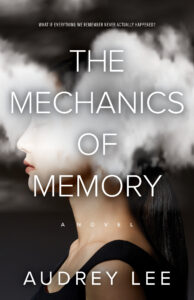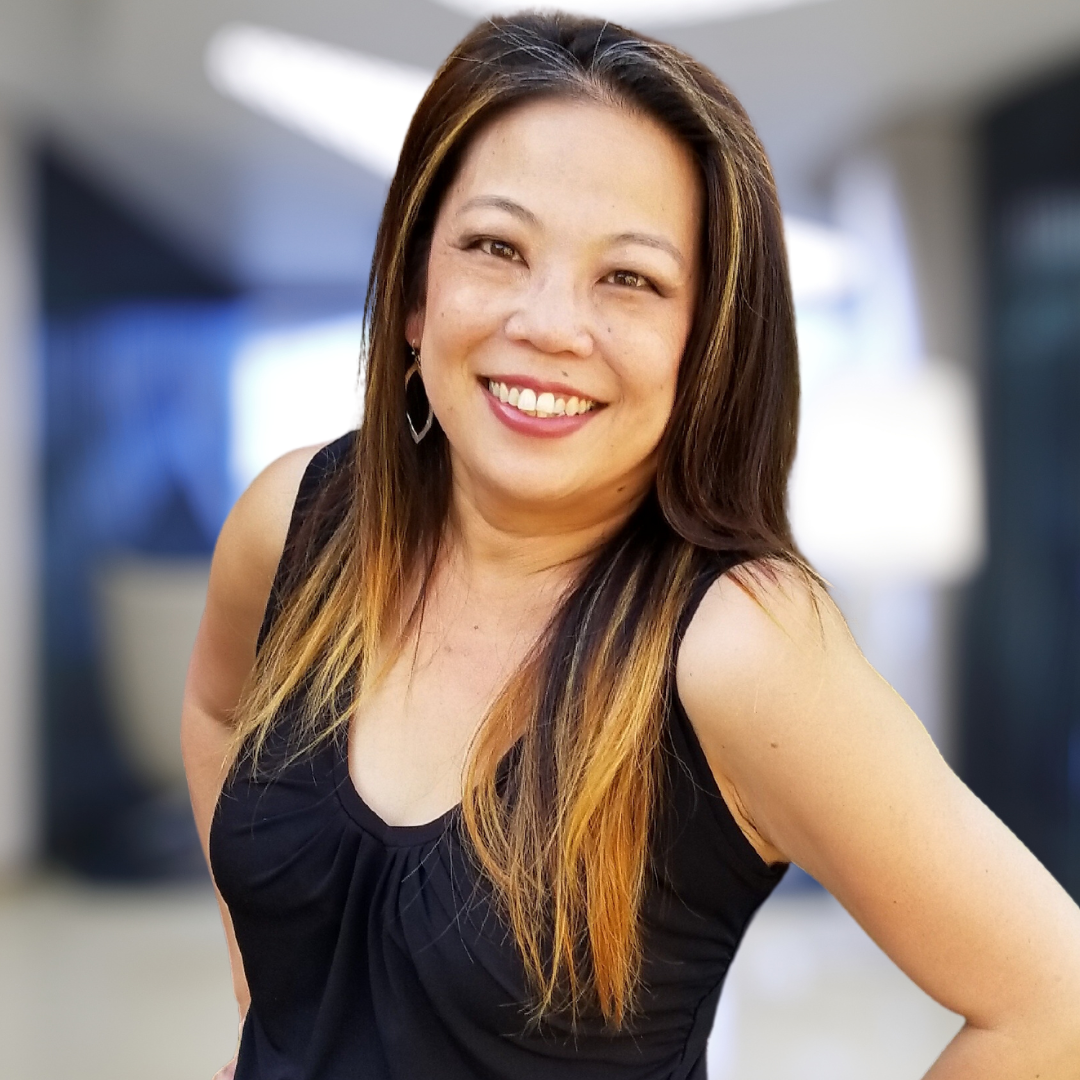Novelist Audrey Lee chats with me about her new psychological speculative thriller, The Mechanics of Memory.

Bio:
Audrey Lee started writing fiction at the young age of eleven, when she and her best friend co-authored a masterpiece about gallivanting around London with the members of Depeche Mode, Wham!, and Duran Duran. Unfortunately, these spiral notebooks have yet to find a publisher evolved enough to understand the genius buried within.
As a result, The Mechanics of Memory is her first work of published fiction.
Before she started writing fiction, Audrey received her master’s degree in education from UC Berkeley (Go Bears!) and spent over two decades in public education.
Audrey lives in the San Francisco Bay Area with her husband, son, and Maltipoo, Luna.
When not working, Audrey is compulsively organizing something, bullet journaling, cheering for her son at a dance competition, max betting on a slot machine, or watching the Golden State Warriors with a dirty martini in hand.
Welcome, Audrey. Please tell us about your current release.
In The Mechanics of Memory, Hope Nakano is institutionalized at a luxury facility with no memory of her last year, despite constant treatments to recover the life she lost. When in VR therapy Hope receives a coded message about her past, her search for answers begins to uncover a dark secret that people are determined to keep hidden. But Hope soon realizes everyone has secrets to protect, including herself.
Alternatively, think: Crazy Semi-rich Asian Gone Girl Interrupted.
The Mechanics of Memory is about the malleable nature of memory. It’s about manipulation. It’s about corporate greed and unchecked power. It’s about technology used for good and also for evil. It’s about choices people make when they believe they have no other options. It asks the question: If what you remember never happened, what sacrifices would you make to find the truth?
This is a twisty thriller with a mind-bending plot, but the core of the book explores whether the connection between two people can endure even if our memories are lost. Fundamentally, I originally set out to write a love story. And to me, it will always be one.
What inspired you to write this book?
Four years ago I was with two friends. It was in a casino, and there was some liquor involved, and we decided to start a writing club. We set a date, and all agreed to write something to share. I wrote a short story and brought it to our next meeting. Turns out, I was the only one who’d written anything!

That short story ended up being roughly the first chapter of The Mechanics of Memory. In the weeks following I continued to wonder what would happen to these characters and what sinister thing was really going beneath the surface. So I kept on writing.
At the same time, I was also reading a book by Dr. Julia Shaw called The Memory Illusion. I was simultaneously fascinated and horrified about how unreliable our memories are. Dr. Shaw uses her powers for good, but the whole time my mind kept returning to all the nefarious possibilities related to memory.
Basically, our brains are like Swiss cheese: we have gaps in what we remember, and our minds fill in those gaps. And we are highly susceptible to suggestion, to want to please and conform, and to believing in our own confirmation bias.
So then I thought, you can do some pretty shady stuff with that knowledge.
What exciting project are you working on next?
Just last week, I finished the first draft of the (currently untitled) sequel to The Mechanics of Memory. Right now I’m polishing it up to submit to my agent. A sequel is comforting because you’ve already done some work in creating a world. But, a sequel can also be constricting for the very same reason.
There are three total books planned for this series, but I’m considering taking a break from this world and working on a standalone novel next. Yet at the same time, Book 3 is nagging me to be written…
When did you first consider yourself a writer?
Hmm. That’s a tough one. On the one hand, I’ve been writing since I could write, and writing has always been something I’ve continually come back to for therapy throughout my life. On the other hand, even though the entire process of landing and agent and then a publisher, there were still some days I wondered if I really was a writer!
So, it may have been as late as when I saw my copyright page. (That’s the page in the front we never scrutinize but is always there in a book.) When it’s your own name and you see the words: Library of Congress, it makes everything feel legit.
Do you write full-time? If so, what’s your workday like? If not, what do you do other than write and how do you find time to write?
When I’m not writing fiction, I work as an educational consultant, facilitating professional learning in school districts to create environments for students that are more equitable, culturally responsive, and socially just.
I’m a fast writer. I had a writing professor in college who made us turn in a five-page essay every single day for an entire semester. His belief was that the only way you can become a better writer is to write, and it’s true. After that class, I never had trouble staring down a blank page again. This definitely came in handy when I was writing The Mechanics of Memory.
Early on, I listened to Neil Gaiman’s Master Class. He said when writing American Gods, he wrote four thousand words a day. Knowing I wasn’t Neil Gaiman but feeling like maybe I could strive to be half as good, I set my goal at two thousand words a day. Most days I hit it.
Even so, work sometimes makes it challenging to write as much as I’d like. These days, I still try to write every day, and I try for an average of five thousand words a week. I’m an early riser, and find I get my best writing done between 4 a.m. and noon.
What would you say is your interesting writing quirk?
I make miniatures related to my novels.
Sheltering in place for a year caused people to do a lot of things. Some people bought Pelotons. I bought a deep fryer and made corn dogs. Some people took long walks and used the time to reconnect with their family. I locked myself in my office and wrote a book. And as the rejections started rolling in, I did what everyone does in the low moments: I made a miniature mental institution.
I created a mini Wilder Sanctuary for The Mechanics of Memory, complete with platitude posters, Hope’s journal, ViCTR, and a tiny Sega Genesis I made out of plasticine. I kept this mini Wilder near my desk while doing revisions, and it always made me smile.
Mini Wilder: https://audreyleeauthor.com/extras/
Mini Other Things: https://createdbyaudrey.wordpress.com/
As a child, what did you want to be when you grew up?
Wonder Woman first, and then a Dallas Cowboys Cheerleader. (I really loved their boots). I also wanted to be a teacher, which is ultimately what I became.
Links:
Website | Instagram | Facebook | Twitter | Goodreads | Amazon
